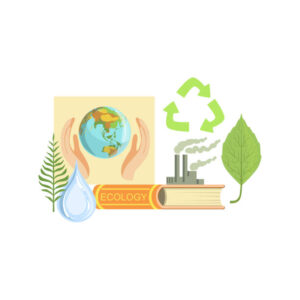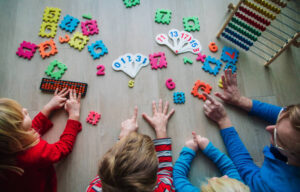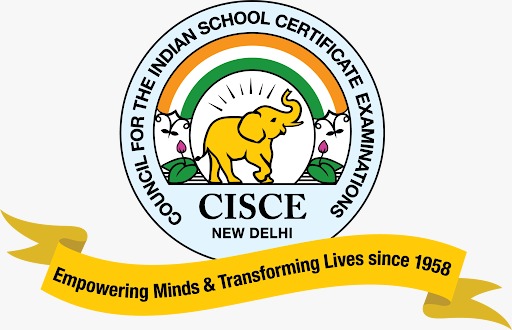Physical education plays an essential role in childhood development, teaching children about the value of health and fitness while promoting well-being across multiple domains: physical, mental, and social. This article explores why physical education is crucial for kids, detailing its impact on health, learning outcomes, and essential life skills.
Physical Health Benefits
Physical education helps children develop healthy habits that are critical for long-term physical health and well-being. Here are key ways it benefits physical health:
- Improved Cardiovascular Health
Regular physical activities, such as running, swimming, or biking, promote heart health by increasing circulation and reducing blood pressure. Physical activity strengthens the heart, lowering the risk of heart disease from an early age. - Enhanced Muscle and Bone Strength
Exercises like lifting weights or bodyweight activities help build muscular strength and endurance, contributing to healthy muscle and bone development. This also helps improve posture and balance, preventing future musculoskeletal issues. - Weight Management
Physical education encourages an active lifestyle, which helps kids maintain a healthy weight. Physical activity boosts metabolism, enabling children to balance calorie intake with energy expenditure, which is key to weight management. - Better Immune Health
Physical exercise boosts the immune system, making children less susceptible to infections and illnesses. Regular activity can reduce inflammation and support the immune response. - Enhanced Flexibility and Joint Health
Activities like stretching and yoga increase flexibility, reducing the risk of injury and joint issues. Physical education encourages kids to move dynamically, improving their range of motion and body mechanics. - Respiratory Health
Physical activities, particularly aerobic exercises, promote better lung function. Aerobic exercises help the lungs use oxygen efficiently, supporting respiratory health.
Mental Health Benefits
The benefits of physical education are not limited to physical health alone. It also offers valuable mental health benefits that contribute to overall well-being.
- Improved Cognitive Function
Physical education has a positive impact on cognitive abilities, enhancing focus and memory by increasing blood flow to the brain. It encourages problem-solving, concentration, and attention to tasks. - Mood Enhancement
Exercise promotes serotonin and endorphin production, known as “happy hormones,” which boost mood and help reduce symptoms of depression and anxiety. Physical activity provides a natural outlet for managing emotions. - Reduced Stress and Anxiety
Regular physical activity helps reduce stress hormones such as cortisol. Engaging in sports or exercises allows children to unwind and relax, promoting mental resilience. - Better Sleep Quality
Physical activity can improve sleep by helping children fall asleep faster and enjoy more restful sleep. This is essential for cognitive functioning, mood regulation, and overall health. - Higher Self-Esteem and Confidence
Physical education provides opportunities for children to achieve and succeed, which boosts their self-esteem. Activities like sports and team challenges allow children to feel a sense of accomplishment and pride. - Enhanced Executive Functions
Activities requiring strategy and coordination promote executive functions, such as planning, decision-making, and organization. This translates into better academic performance and problem-solving skills.
Social Benefits of Physical Education
Physical education offers children the chance to develop essential social skills and build relationships that foster a sense of community and teamwork.
- Improved Communication Skills
Team sports and group activities help children learn effective communication, as they have to interact with teammates and work toward shared goals. This enhances both verbal and non-verbal communication. - Building Friendships and Social Connections
Physical education often brings students together, giving them common interests that foster friendships. Group activities provide the opportunity to connect with peers and develop a sense of camaraderie. - Leadership and Teamwork
Physical education encourages teamwork and leadership by allowing children to take on various roles, such as captain or mentor. These roles develop leadership skills, including decision-making, responsibility, and the ability to inspire others. - Empathy and Compassion
Working closely with teammates teaches children to support each other and develop empathy. They learn to value others’ contributions, promoting a compassionate and supportive environment. - Conflict Resolution Skills
Sports and physical education activities often present situations requiring conflict resolution. Kids learn negotiation skills and develop constructive ways to handle disagreements. - Cultural Awareness
Physical education programs expose children to diverse sports and games from around the world, promoting cultural understanding and acceptance. This fosters an inclusive environment.
Establishing Lifelong Fitness Habits
Physical education builds the foundation for lifelong fitness, encouraging kids to adopt habits that keep them active and healthy well into adulthood.
- Creating an Exercise Routine
Exposure to regular physical activity at a young age instills the habit of making exercise part of daily life. This routine can continue through adulthood, promoting a healthier lifestyle. - Skill Development
Physical education helps children develop basic movement skills, like running, jumping, and balancing. These skills build confidence and encourage them to engage in physical activities throughout life. - Positive Feedback and Encouragement
Receiving positive feedback from teachers and peers boosts motivation. This encouragement helps children enjoy physical activity and seek out healthy activities for personal enjoyment. - Knowledge of Healthy Choices
Physical education introduces kids to a well-rounded understanding of health, including nutrition and fitness. This knowledge empowers them to make healthy lifestyle choices as they grow older. - Reducing Sedentary Behavior
Teaching children the value of active breaks and reducing screen time encourages a lifestyle that minimizes sedentary behavior. Physical education motivates students to choose active options, like walking or cycling, over passive activities.
Physical Education in Schools
Physical education is an essential component of the school curriculum, providing a structured way for students to learn about and engage in physical activities.
- Structured Active Classes
Schools can incorporate physical activities into daily classroom routines, offering short activity breaks that help maintain engagement and reduce restlessness. - Engaging Lunchtime and Recess Activities
Schools can use recess and lunch breaks to promote unstructured play and organized activities, allowing students to explore different types of physical activity. - After-School Programs
Extracurricular activities like sports clubs give students a chance to pursue interests outside of academics, providing a social and physical outlet that keeps them active. - Qualified Instructors and Role Models
PE teachers serve as role models who inspire students to embrace physical activity. With proper guidance, students can safely and effectively learn skills that will benefit their health. - Incorporating Health Education
Physical education can also include lessons on nutrition, healthy lifestyle choices, and personal well-being, which encourage children to live balanced and active lives.
Overcoming Challenges to Physical Education
Physical education programs sometimes face barriers, such as limited resources, lack of time, or a shortage of qualified staff. Addressing these challenges is essential for creating a successful program.
- Resources: Schools can seek community partnerships and apply for grants to acquire equipment and fund physical education programs.
- Time Constraints: Physical activity can be integrated into academic subjects, and short activity breaks can be implemented to make the most of limited time.
- Motivation: Offering a variety of activities can spark interest, and allowing students to choose sports they enjoy can foster a positive attitude toward physical education.
Conclusion
Physical education is a vital component of a child’s development, offering numerous benefits across physical, mental, and social domains. By engaging in regular physical activity, children can improve their physical fitness, boost cognitive function, and build essential life skills like teamwork and leadership. Schools play a pivotal role in fostering these benefits, helping students build lifelong fitness habits that contribute to healthier, more active lifestyles. For parents looking for a well-rounded education for their children, including access to quality physical education, the best ICSE schools in Kadugodi provide comprehensive programs designed to nurture students’ overall well-being. To further explore creative learning experiences, check out our other blog on Engaging Computer Science Projects for School Students, where we discuss hands-on projects that encourage problem-solving and technological skills.
FAQS
Physical education promotes physical fitness, mental well-being, and social skills. It helps children develop motor skills, stay healthy, and learn valuable life skills like teamwork and perseverance.
Physical education enhances mood, reduces stress, and improves cognitive function. Regular exercise releases serotonin and endorphins, promoting a positive outlook and mental resilience.
Physical education in schools boosts cardiovascular health, improves focus, and fosters social skills like teamwork and communication. It helps children stay active and adopt lifelong fitness habits.








